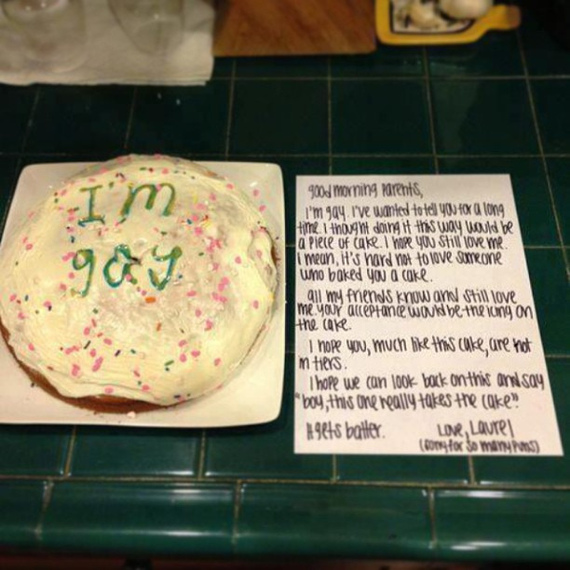Time to clear up all the confusion surrounding the word "gay."
"Gay" is a multi-faceted word. Apart from its primary definition of "bright" or "lively," its meaning as "sexually loose" and "dissipated" has been its most popular and enduring definition.
Being "in the gay life" once put you in the fast lane. "Feeling gay" left you amorous. The "gaying instrument" (19thC) was the male member, without which it wouldn't be possible to "gay it."
The "gay woman" was a major literary figure from Chaucer to Shakespeare, right on through the nineteenth century. She was "gay in the arse," "groins," or "legs" and spent much of her time in a "gay house." Even today, in England, we have the "gay girl," a hardworking flat-backer trying to turn an honest shilling (or is it a euro?).
"How long have you been gay?"
"I ain't gay," said she astonished.
"Yes you are."
"No I ain't."
"You let men (make love to you), don't you?"
"Yes, but I ain't gay."
"What do you call gay?"
"Why the gals who come out regular at night,
dressed up, they get their livings by it," she said.
--Anon., My Secret Life, 1888
Although there exists much controversy among scholars, the word most likely derives from the Old English gal for "lewd" and"lascivious" (which also gave us quite a "gal," a nineteenth-century British term for a prostitute) rather than the more obvious gai, from Provence in southeastern France, a word which earlier referred to courtly love and its literature.
Gay did not become associated with "simulsex" (early 20th C) until the early part of the twentieth century, as underground jargon. It went public with this meaning around 1903, with the" gay boy" in Australia, and in 1935 in the United States in the film "Bringing Up Baby," in which Cary Grant donned a dress and commented how he had "gone gay."
Between 1955 and 1960 the word captured everyone's fancy, culminating in the joyous outburst of the seventies.
And what a wide range of personalities emerged! Some were "gay as pink ink" (mid 1950s), or "overtly, obviously homosexual."Others were more restrained. They included the high achievers or "guppies," "gay upwardly mobile professionals," the morally upright gay Christians; and the "gaybies," "young gay males with a cute face, stylish clothes, and a warm personality"--the kind you'd bring home to mother.
Not everyone, however, loved the word. Christopher Isherwood called it "Damned silly...A term which made us into frivolous Idiots--sort of bliss-ninnies."
It also led to rather silly usage. such as, "THOUSANDS MOURN AT GAY FUNERAL," a headline in San Francisco newspaper, cited in Detroit Free Press on August 27,1979.
Today, "gay," or some word close to it, is used in more than a dozen countries in the same sense as in English. We have gay bars, gay boutiques, and gay publications. It's become all so respectable--a far cry from the days when proprietors handed out "gayola" (gay + payola, c.1960): "blackmail or extortion paid to police to protect a homosexual establishment."
Madison Avenue has at last awakened to the word's full commercial potential, and wordsmiths have begun to retool the language. It's probably only a matter of time before "the gay old dog"becomes an aged homo and "the gay blade," a means of removing unwanted body hair.
Toujours gai! Mes amis.
my youth i shall never forget
but there s nothing i really regret
wotthehell wotthehell
there s a dance in the old dame yet
toujours gai toujours gai
the things that i had not ought to
i do because i ve gotto
wotthehell wotthehell
and i end with my favorite motto
toujours gai toujours gai
boss sometimes i think
that our friend mehitabel
is a trifle too gay
--- From The Song Of Mehitabel from Archy and Mehitabel
Follow Larry Paros @
insomanywords.net
Take words with Larry @
twitter.com/wordswithlarry
facebook.com/wordswithlarry
pinterest.com/wordswithlarry
More fun with words by Larry
bawdylanguage.com

